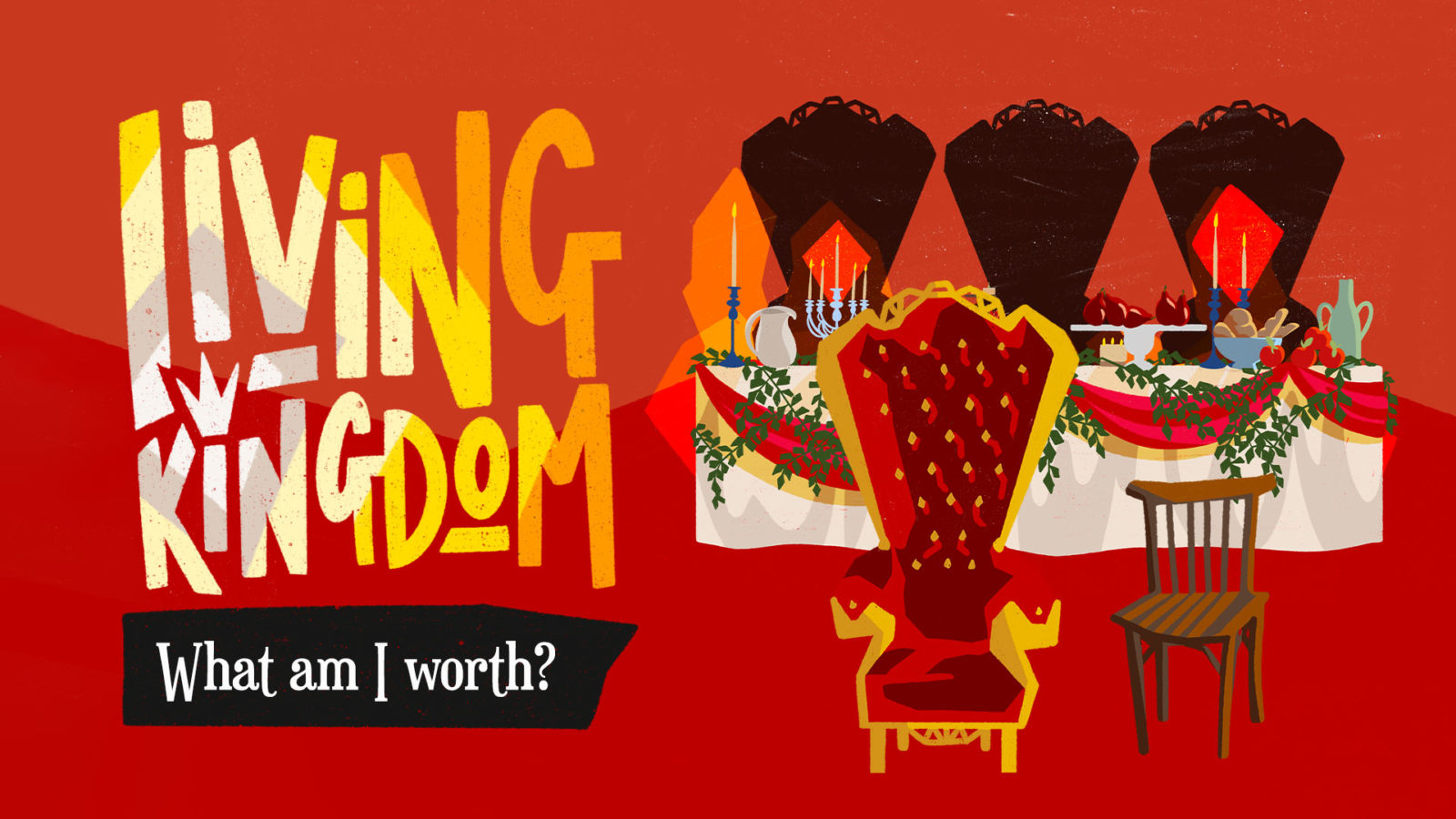Parable: The lowest seat at the feast
“But when you are invited, take the lowest place, so that when your host comes, he will say to you, ‘Friend, move up to a better place.’ Then you will be honoured in the presence of all the other guests. For everyone who exalts himself will be humbled, and he who humbles himself will be exalted.” Luke 14:10,11
When I was in primary school, I had very low self-esteem. Instead of walking, I would shuffle around with my eyes focused on the ground and my arms pinned across my chest. I never quite believed that my friends actually liked me and was always suspicious that they were mocking me behind my back. I was even too afraid to buy food from the canteen because I didn’t want to line up in front of others! But one story from my childhood, in particular, haunts me.
I was perhaps eight years old and all the girls in my class were playing “mums and dads” at lunchtime. When I was asked which character I wanted to play, I chose to be the pet —a dog—rather than the more desired characters, like the mum, dad, children or even grandparents. I didn’t want to be the pet, but my reasoning was this: if I chose a role the other girls wanted, they wouldn’t want me to play with them or might resent me for choosing the role they wanted. And so I would bark, crawl around on my hands and knees, have a skipping rope tied around me like a leash, and allow people to treat me like an animal.
A lot has changed since that time, thanks to many kind, insightful, generous and wonderful people in my life. Looking back, I am often shocked by the things I once did to please others. But even now, I sometimes still struggle with my sense of value and worth.
When I first read the parable about “The Lowest Seat at the Feast” in Luke 14:7-14, I was greatly distressed!
In this passage, Jesus has been invited to a pharisee’s house for Sabbath lunch and notices the guests choosing the more honourable seats at the table. He then tells a parable of a guest who chooses the seat of honour at a wedding feast, only to be asked to move so a more distinguished guest may have that seat. Humiliated, he then has to take the lowest seat. Jesus tells the crowd that when invited to a feast, they should choose the lowest seat. Then, the host will move them up to a better seat and honour them before everyone.
Choosing the lowest seat . . . every time I would read this parable, all I could think of was my distressing memory of choosing to play the “dog” in the playground and allowing others to just walk all over me. How could Jesus tell His followers to choose the lowest place? Did Jesus really expect me to back-peddle and become like I was before—bowing to the interests of others so as not to disappoint?
For years I didn’t properly understand what Jesus meant. But now that I have more life experience and understanding of biblical context under my belt, it is easier to see what Jesus was really getting at. Jesus was invited to the house of a prominent Pharisee for Sabbath lunch. This Pharisee would have surrounded himself with people of high standing, rather than the humble “sinners” and “tax-collectors” Jesus spent time with. And having been invited to the house of a prominent Pharisee, these guests would have been aware of their high position in society and were likely proud of their status. So when Jesus rebuked the guests, he was addressing their problem with pride more than anything else.
Something I have discovered recently is that pride and self-deprecation are not as dissimilar as one might originally think. Pride is commonly associated with the idea of a puffed-up self-importance and an air of arrogance. While this expression of pride can be a result of a high opinion of self, research has shown1 that there is a distinction between genuine pride, where a person considers themselves a person of worth, and a more hubristic form of pride, where a person considers themselves superior to others. These two types of pride are very different yet have been semantically grouped together under the same umbrella for generations. [pullquote]
The former identity of pride is positive and even healthy in many circumstances, such as being proud of working hard. The latter hubristic form of pride, however, is where the discomfort lies. Distinct from narcissism and delusions of grandeur, this hubristic form of pride has been linked with feelings of anxiety and insecurity (Tracy et al., 2009). This reveals an uncomfortable notion–pride is insecurity walking around in a nice suit.
When Jesus addresses the guests’ problems with pride, He is pointing out their need for God.
Jesus is not challenging these guests to lower their opinion of self by taking the lowest seat. He recognises that their pride is masking the real problem of self-worth and He is instead inviting the guests to have a secure self-worth and identity in God. Once we have this security, it will not matter whether we sit at the highest seat or the lowest seat, because our position does not dictate our value–our Host does.
Just being invited to His table in the first place is an astonishing and incredible gift that we do not deserve! With gratitude and humility we recognise that it is by grace that we have been invited, through faith, and this is not from ourselves, it is the gift of God (adapted from Ephesians 2:8).
Jesus continues the parable in verses 12-14, telling his host, the prominent Pharisee, that when he invites guests to his banquet, he should invite the poor, crippled, lame, and blind—those who cannot repay him.
Here, Jesus is illuminating the intentions of our hearts when we serve others—are we hoping to be blessed or to bless others? To receive recognition for ourselves or to give others recognition? Are we genuinely serving with humility?
Often, self-deprecation is mistaken for humility: dismissing compliments we are incapable of accepting, complimenting others by pointing out our own inabilities, and making jokes out of our insecurities before others can make fun of us. At its heart, self-deprecation can beat at the same rhythm as pride: both can come from a place of low self-worth and insecurity. Pride reveals an over-compensatory response to mask one’s insecurities from others, while self-deprecation is the expression of one’s wallowing and over-identifying with insecurities.
Masking self-deprecation as “humility” is damaging to our understanding of what humility truly is and how it should be expressed. Humility, unlike self-deprecation, is not thinking less of ourselves but thinking of ourselves less. It is not loving ourselves less, but loving others more and comes from a place of self-acceptance and security. Our attitude should be the same as that of Jesus Christ, who did not consider equality with God something to be grasped but left everything behind to humbly serve others so as to reveal His desperate, yearning, self-sacrificing love for us (summarised from Philippians 2:5-11).
Jesus offers us life and worth and security through His gift of love–but this gift came at a cost! Rejection by humanity; a life of suffering, loneliness, and misunderstanding; immense burdens and responsibilities; the brutal and unfair punishment of the innocent; excruciating torture at the hands of His fellow men; the shame of the cross–a form of death cursed by God; and ultimate separation from God, crying out “My God, my God, why have you forsaken me?”
We are unworthy of this gift, but in Jesus’ eyes we are worth everything.
This is what the Kingdom of Heaven is all about. It is about discovering our worth and value in Jesus and serving Him humbly and wholeheartedly, hoping we might reflect the awesome and radical love of God who pours Himself out for others. Jesus invites us into this beautiful identity in Him where we don’t have to mask our own insecurities with pride or self-deprecation. Instead, we will have the confidence to take the lowest seat or place of a servant with humility, knowing that by doing so, others will be blessed.
Olivia Fairfax is a psychology and law student at Macquarie University, who attends Wahroonga church, Sydney (NSW).







